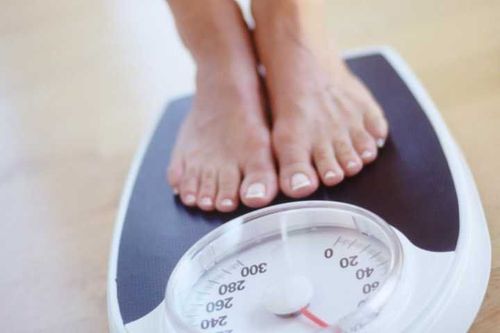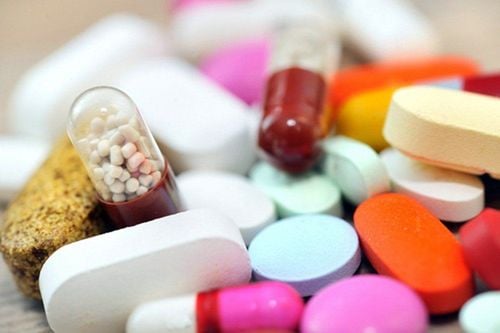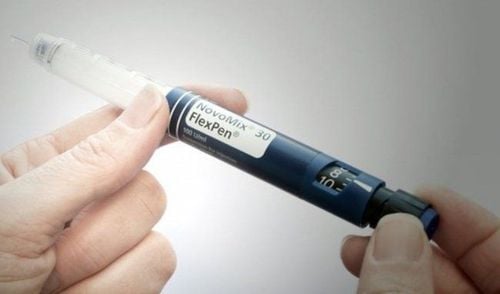This is an automatically translated article.
The article was consulted professionally with MSc. Doctor Vu Thi Duyen - Doctor of Nephrology - Endocrinology, Department of Examination & Internal Medicine - Vinmec Hai Phong International General Hospital.To prevent complications during insulin therapy in diabetes, any diabetic patient should be aware of complications of insulin therapy, such as hypoglycemia. So how does the patient know this? When seeing an endocrinologist, patients should ask their doctor about possible complications from insulin injections and how to detect and prevent such complications, especially when they occur at home.
1. Complications that may occur in diabetics when taking insulin
1.1.Complications of hypoglycemia This is one of the very common complications, if not detected and treated promptly, the disease can progress rapidly and can be life-threatening or even fatal. The cause of hypoglycemia due to insulin overdose changes the patient's condition in a very short time causing very high blood glucose levels to hypoglycemia, insulin allergy, insulin injection site dystrophy etc. .. Clinically expressed as fatigue, tremor, increased sweating, nervousness, palpitations, feeling of hunger, numbness of the lips, numbness of the tip of the tongue, headache, vomiting, lethargy, coma. It is necessary to adjust the insulin dose accordingly.1.2. Insulin resistance when treated with insulin Insulin resistance is a condition in which cells and organs in the body need a higher than normal amount of insulin to respond to that condition. This is because the immune system causes the body to produce antibodies against insulin. Therefore, to avoid insulin resistance, each patient needs to have a suitable diet and choose the right insulin for treatment.
1.3. Insulin injection site lipodystrophy This is one of the common complications in diabetic patients when long-term insulin therapy leads to atrophy of subcutaneous fat at the injection site due to neurotrophic disorders in the body. injection site due to mechanical, physiological, and thermal stimulation and by injection technique.
Patients when insulin injections from 1 to 6 months, where the injection site appears a concave skin, more severe may completely lose subcutaneous fat in a large area at the injection site. To prevent this complication, the patient is best advised to alternately change injection sites continuously according to the rotation of the clockwise hand.
1.4. Allergy to insulin This complication may appear 15 - 30 minutes after insulin injection and manifests as a pale pink halo at the injection site. Systemic manifestations include urticaria, fatigue, mild fever, itching, pain in joints, digestive disorders. If more severe, life-threatening symptoms such as swelling of the tongue, tightness in the chest, shortness of breath, dizziness, or fainting occur this is an emergency that requires immediate medical attention.
In cases where insulin therapy is still required, endocrinologists change insulin injections and carefully monitor them. If not, the doctor will desensitize with very small dose of insulin and gradually increase it, if desensitization is not successful, then consider switching the treatment regimen.
1.5. Weight gain from insulin injections Diabetic patients on high-dose insulin therapy are more likely to experience weight gain as a side effect. This may be because the body is more efficient at using calories during insulin treatment, so change your diet more and exercise more. In addition, each type of insulin can have its own side effects. When starting a new insulin, read the patient information to identify common side effects of that insulin.

Những bệnh nhân đang điều trị insulin liều cao có nhiều khả năng bị tăng cân
2. Some notes for diabetic patients when taking insulin treatment
It is best to change the injection site continuously. The best injection sites are the abdomen around the navel in a clockwise direction, in front or on the side of the thighs, above the buttocks, and above the arms. Each injection site should be about 5cm away from the old site. Try not to inject near the navel or inject near scars or moles. Try to set the injection time for each site. For example, it can be injected into the abdomen before breakfast, injected into the thigh before lunch, and injected into the arm before dinner.Need to clean the skin before injection: Wash your hands with soap and warm water before injecting, disinfect the skin with alcohol-soaked cotton, then wait 20 seconds for the skin to dry before injecting to avoid infection.
Do not inject insulin too deeply. Try not to panic if you notice too little or too much insulin by mistake. Changing the type of insulin you are taking or changing your insulin dose without consulting your doctor can increase your risk of complications and side effects. If you have type 2 diabetes, you should see your doctor for regular checkups every 3-4 months. At each visit, doctors can assess a patient's insulin needs and adjust the dose accordingly.
Need to check blood sugar regularly for better blood sugar control. Blood sugar can change depending on stress levels, exercise frequency, medical conditions, diet and even hormonal changes throughout the month. If blood sugar changes too much, it is necessary to adjust the amount of insulin being injected. The amount of insulin will depend on the amount of carbohydrates you plan to eat during the meal. Therefore, it is easy to calculate the amount of carbohydrates eaten or consult a nutritionist.
3. Common mistakes made when treating diabetes
Patients often think that they have diabetes, they should absolutely not eat sweets, think that taking western medicine is harmful, insulin injections make the disease worse or cure it, only treat diabetes drugs without taking other drugs. other drugs, only check blood sugar before breakfast. Not testing fasting blood sugar does not understand treatment goals. These are completely wrong thoughts, diabetes is a chronic disease that requires lifelong treatment, good blood sugar control depends on the cooperation between the patient and the treating doctor, so the patient needs to be treated. monitor, re-examine and follow the advice of medical staff.Please dial HOTLINE for more information or register for an appointment HERE. Download MyVinmec app to make appointments faster and to manage your bookings easily.













